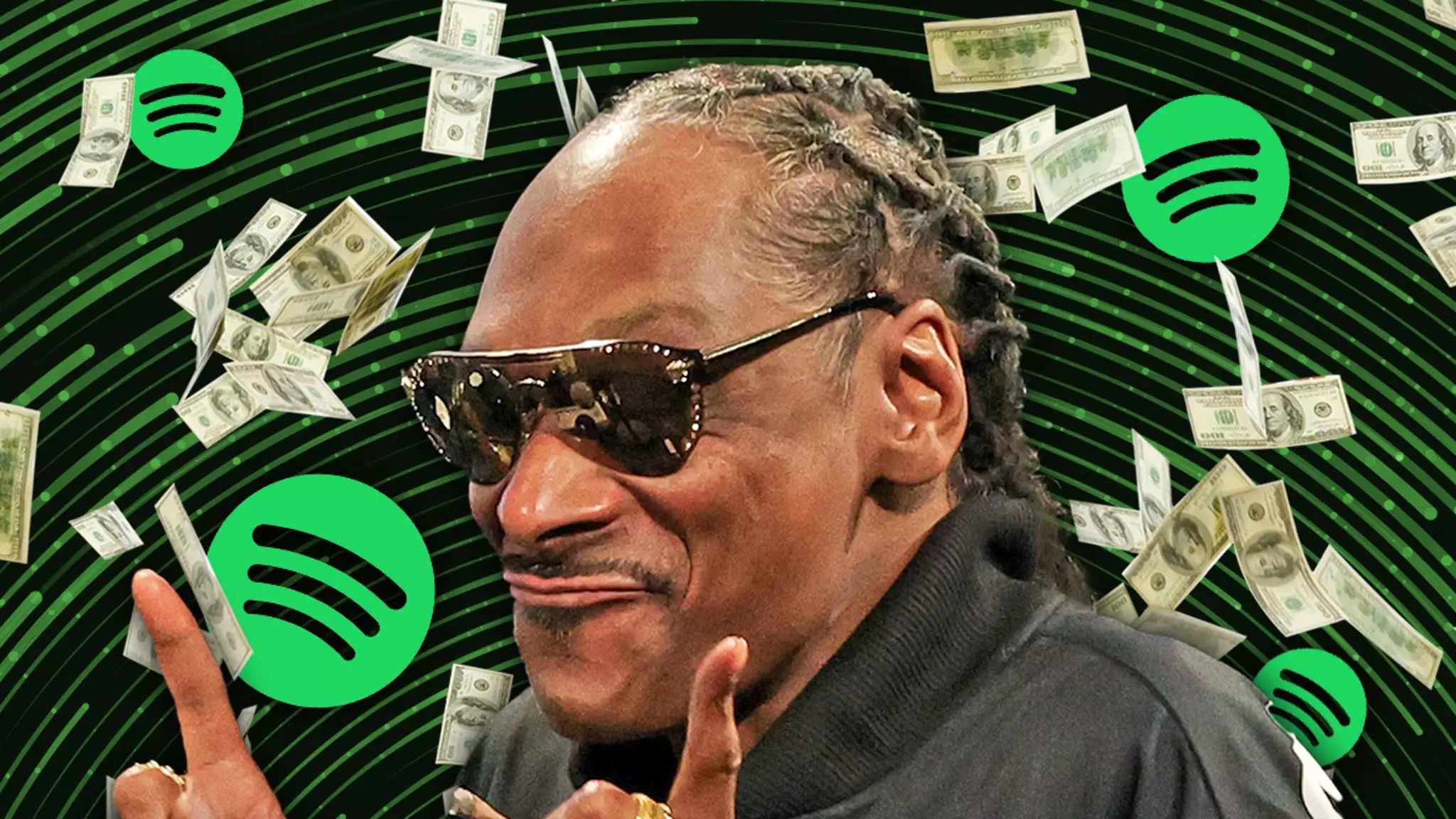Snoop Dogg’s recent criticism of Spotify raises a significant issue in the music streaming industry surrounding fair compensation for artists. While Snoop publicly expressed his discontent over receiving just $45,000 for a staggering billion streams, it appears there is more to the story than mere grievances. Spotify, a leading player in the streaming market, quickly responded, asserting that the platform’s revenue sharing policies typically reward artists and rights holders substantially more than Snoop claimed to have received.
Though Snoop is a cultural icon and has independently amassed considerable wealth in various ventures, his complaints shed light on a broader conversation about income disparities in the music industry. Many artists rely heavily on streaming revenue, and allegations of insufficient payouts can stir unrest. Spotify’s spokesperson attempted to clarify the situation, suggesting that the substantial earnings from a billion streams do not simply evaporate—they must reach the rightful holders, which leaves room to question whether Snoop Dogg’s figures were accurate or if there are discrepancies in the distribution process.
In light of these earnings disputes, Snoop’s recent partnership with Tune.FM is critical to understanding how artists are beginning to navigate this evolving digital ecosystem. As Tune.FM represents a burgeoning Web3 platform, it raises questions about the potential for artists to reclaim their revenue streams amidst traditional music industry structures that have often marginalized them.
The move to Tune.FM could potentially place Snoop and other artists in a better position to retain ownership over their work, suggesting a significant shift in how music distribution might evolve. By announcing his intention to transfer his catalog to Tune.FM, Snoop Dogg taps into emerging models of blockchain technology, which promise more equitable revenue-sharing strategies and greater artist control. This bold step signifies a not-so-subtle critique of conventional models that continue to dominate but may no longer serve the best interests of creators.
Snoop Dogg’s decision to collaborate with a Web3 platform exemplifies a larger movement within the industry, indicating that many artists are recognizing the necessity of seeking alternatives to traditional streaming services, where payment structures may not align with artistic value. This highlights an ongoing dilemma in the music industry—how can artists ensure fair compensation in an age where streaming has become the dominant mode of music consumption?
As more artists explore avenues like Tune.FM, they also challenge the norms perpetuated by entities like Spotify. The ultimate test will be whether artists can build a sustainable ecosystem that not only compensates them fairly but also enhances their autonomy in an industry that has historically favored corporations over creatives.
Ultimately, while Snoop Dogg’s criticisms of Spotify highlight a pressing issue regarding artist compensation, the shift toward Web3 platforms like Tune.FM suggests an exciting and transformative period on the horizon for the music industry, one focused on empowering artists and redefining the relationship they have with their music and revenue.

